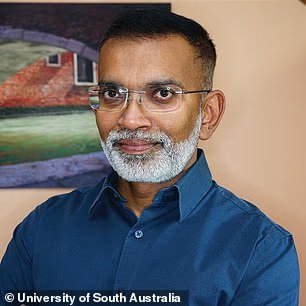The tiny detail that makes you FIVE times more likely to develop bowel cancer at any age: ‘The risk rises sharply’

The tiny detail that makes you FIVE times more likely to develop bowel cancer at any age: ‘The risk rises sharply’


You’re five times more likely to contract bowel cancer if two particular factors are present, a groundbreaking new Australian research study has found.
Bowel cancer, or colorectal cancer, is currently the second deadliest and fourth most common type of newly diagnosed cancer in Australia – and it’s rapidly growing in young people.
The new study uncovered that people who are found to have two particular types of polyps – the common growths found in the bowel – are at an increased risk of developing bowel cancer down the track.
Bowel cancers start off as benign polyps (non-threatening growths) on either the wall or lining of the bowel. But in the event that these benign polyps are either adenomas or serrated polyps, they have potential to develop into cancer.
In the event that someone is found to have a history of developing both adenomas and serrated polyps, they are up to five times more likely to develop advanced pre-cancerous changes, compared to those who had one type.
‘Polyps are common and usually harmless, but when both types appear together -what we call synchronous lesions – the risk of serious bowel disease or cancer rises sharply,’ said Dr Molla Wassie, the lead author of the study by Flinders University.
‘If you’ve had both types of polyps, it’s especially important to stay on top of your colonoscopy schedule.’
The new finding was made following the analysis of over 8,400 colonoscopy records, which Dr Wassie described as ‘one of the largest studies of its kind’.
Dr Molla Wassie (pictured) was the lead author of the Flinders University and Flinders Medical Centre study that identified the increased risk of bowel cancer amongst those who had two types of benign polyps (non-threatening growths) in adenomas and serrated polyps
Worryingly, the data analysis uncovered that nearly half of all patients with serrated polyps also had adenomas, suggesting that the high-risk group for contracting bowel cancer is greater than medical experts had previously thought.
‘Our findings support growing international evidence that these two types of polyps may represent separate cancer pathways that can be active at the same time – making early detection and regular monitoring even more important,’ Dr Wassie said.
The findings also revealed that serrated polyps may progress to cancer faster than adenomas, reinforcing the need for tailored colonoscopy surveillance guidelines.
‘Polyps become more common as we age, but the key is catching and removing them early,’ Dr Wassie continued.
It’s now advised that anyone over 45, or people who have a family history of bowel issues, should be talking to their GP about bowel cancer investigations and undergoing regular screenings.
The National Bowel Cancer Screening Program is also available to eligible Aussies aged 45 to 74, offering a free test that can be done at home every two years.
As the prevalence of bowel cancer particularly among younger people increases, Daily Mail also recently spoke with University of South Australia researcher Professor Michael Samuel about his project that aims to better understand the high rate of cancer recurrence.
‘People who have had their bowel cancers completely removed with no trace of the disease remaining also – rather frustratingly – frequently experience a recurrence,’ said Professor Samuel, who is from the university’s Centre for Cancer Biology.
University of South Australia cancer researcher Professor Michael Samuel (pictured) is researching cancer recurrence biomarkers amongst those who’ve previously had bowel cancer
‘They either get bowel cancer again, or find it has spread to other parts of the body,’ the Professor told Daily Mail.
Accordingly, the biology professor’s current research study is seeking to find whether there is a certain make-up of chemicals detectable in the bloodstream that is present in those who experience a recurrence following bowel cancer.
This biomarkers research could then be potentially used to detect an increased likelihood of recurrence in those who have previously had bowel cancer.
‘That way, we could much more easily screen for recurrence by monitoring people’s blood, instead of having to do colonoscopies on a regular basis,’ Professor Samuel explained.
‘It’s in the relatively early stages. But we’re working on trying to identify those biomarkers, and whether it is then possible to test for them through blood tests.’
Disclaimer: This news article has been republished exactly as it appeared on its original source, without any modification. We do not take any responsibility for its content, which remains solely the responsibility of the original publisher.
Author:
Published on: 2025-09-29 05:25:00
Source: www.dailymail.co.uk





